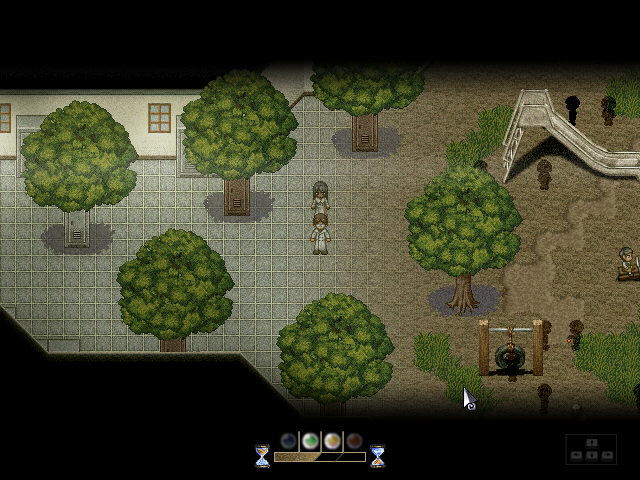Finding Paradise is the long-awaited sequel to 2011’s To The Moon, a game I reviewed previously and greatly enjoyed. Like its predecessor, Finding Paradise is a story about memory, love and regret, told through a sci-fi lens and presented as a low-res JRPG without any RPG elements.
In both games, you play agents of Sigmund Corp, a company that offers a memory alteration service to elderly clients. People with regrets or unfulfilled dreams and aspirations tell Sigmund how they wish their life had gone, and Sigmund sends a couple of agents equipped with an Inception-style mind-entering machine to them on their deathbed. These agents hook the client up to the machine, enter their memories, and make alterations at key points which have a ripple affect that recreates the client’s remembered life in line with their wishes, allowing them to die at peace.
Beyond just being a fascinating premise, it’s one that naturally leads to the kind of stories that games are pretty good at telling. The player’s characters move through their client’s memories mostly as invisible observers. Each stage of memory is presented as a place – the client’s home, a park, a school – and the player clicks on objects to invoke brief scenes of memory around those objects. The most personal and important objects are termed mementos and used to move between stages, which progress backwards through the client’s life, from their most recent memories to their earliest. As these vignettes unfold, connections between them become apparent, and the player figures out not only how to achieve the client’s desired wish, but also the deep motivations behind the wish.
In To The Moon, the inner story of John and his desire to go to the moon took centre stage, but Finding Paradise gives a bit more space to the series arc, with more time dedicated to the player characters and Sigmund Corp itself. This game’s inner story, of a man named Colin with a far more ambiguous wish than to become an astronaut, also more directly questions the series premise: is it right to alter someone’s memories to make them happy? It’s a lower-key, much less straightforward story than that of To The Moon that doesn’t deliver the same pure catharsis at the end, but leaves the player with a lot to ponder.

Most of the game takes place in Colin’s memories, allowing for some interesting settings.
Finding Paradise’s gameplay is about the same as its predecessor’s: mostly you just click on things, but there’s also a little puzzley minigame for preparing mementos (slightly more sophisticated and interesting than the previous game’s) and a couple of optional arcade sequences that serve more as jokes of the Scott Pilgrim kind than core parts of the game.
Superficially, Finding Paradise looks identical to its predecessor, but in this installment the lovely pixel art is complemented by increasingly expressive animation. Characters move and emote in a delightful variety of ways, and this is all the more impressive considering the game’s tiny resolution. This is likely owing to creator Kan Gao’s experiment with purely visual storytelling in A Bird Story – though that was not well received1, developing it likely gave him an awareness of visual storytelling which definitely strengthens this effort.
Incidentally, the tiny resolution can be a minor annoyance on larger screens and for sensitive mice (mouses? meeses?). As with many other RPG Maker games and AGS games, this is only going to get worse as screens get bigger and resolutions smaller. The minor annoyance I noted in my previous review – that the cursor takes on the appearance of an hourglass to convey a meaning other than “loading, please wait, don’t click” – is still present, and caught me out the first time.
The soundtrack is good, but I didn’t notice it quite as much while playing as I did the first game’s, barring a couple of particular tracks.

If the hourglass was animated I would probably still be stuck here.
Finding Paradise is more of what made To The Moon great, and so if you enjoyed that game, you should definitely play this one, especially if you’re itching for the further development of those sequel hooks dropped at the end. And with any luck it’ll be less than six years before we see further development of the ones dropped in this installment.
I’ve not played it myself, largely because I felt so much of To The Moon’s strength lay in its writing without which, well, meh. ↩︎
 David Yates.
David Yates.